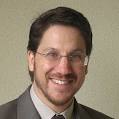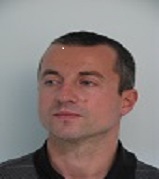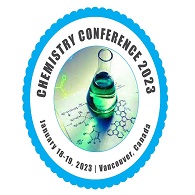Renowned Speakers

BARRY A. BUNIN
Collaborative Drug Discovery USA

Nicola Pugno
Professor University of Trento Italy

John A. Soderquist
Professor Universityof Puerto Rico USA

Mark Lautens
Mark Lautens Professor University of Toronto Canada

Bhanu P S Chauhan
Professor And Chairperson William Paterson University USA

Maia Merlani
senior research scientist Tbilisi State Medical University Georgia

Ahmed M. Radwan
Chairman & CEO PIONEERA HealthCare Group UK

Sena Caglar Andac
Assistant Professor Istanbul University Turkey
Recommended Global Chemistry Webinars & Conferences
Europe & UK
Asia Pacific & Middle East
Canada
Chemistry Conference 2023
About Conference
Conference Series greets you to attend “13th International Conference on Chemistry and Medicinal Chemistry" which is going to be held on January 18-19, 2023 at Vancouver, Canada. We heartily invite all the participants interested in sharing their knowledge and research in Chemistry and Medicinal Chemistry.
13th International Conference on Chemistry and Medicinal Chemistry is mainly based on the theme “Discovering the Scientific and Innovative progressions in Medicinal Chemistry”.
Why to attend?
In the light of this subject, the gathering arrangement plans to give a discussion to worldwide analysts from different regions of science, drug store, Chemistry and Medicinal Chemistry giving a stage to basic investigation of new planning, and to share most recent front line explore discoveries and results pretty much all parts of Medicinal Chemistry.
It also provides a premier interdisciplinary platform for researchers, practitioners and educators to present and discuss the most recent innovations, trends, and concerns as well as practical challenges encountered and solutions adopted in the fields of Chemistry. To discuss the issues and accomplishments in the field of Chemistry Conference. Conference Series has taken the initiation to gather the world class experts both from academic and industry in a common platform at its Chemistry conferences.
Target Audience:
World Chemistry and System biology conference brings together individuals who have an interest in different fields of Chemistry and Biological Science. Target Audience will be personnel from both industrial and academic fields which include
- Chemists
- Pharmaceutical scientists
- Biotechnologists
- Biochemists
- Professors
- Researchers
- scientists
- CEOs from companies
- Chemical Instrument Vendors
- Directors
- Students from the Chemistry and Biology
Scientific Sessions
Track 01: Medicinal Chemistry
Medicinal Chemistry is commonly an interdisciplinary science, and pros have a solid foundation in natural science, which should as time goes on to be united with a wide comprehension of characteristic musings related to cell steady targets. Research analyst in medicinal chemistry work is fundamentally present-day researchers, filling in as a segment of an associative social event that utilizes their science limits, particularly, their built limits, to utilize substance measures to design effective therapeutic agents. Medicinal chemistry is discipline at the intersection of chemistry, especially synthetic organic chemistry, and pharmacology and various other biological specialties, where they are involved with design, chemical synthesis and development for market of pharmaceutical agents, or bio-active molecules .
Track 02: Pharmaceutical Chemistry
Pharmaceutical science is the study of drug compounds, and it includes the drug development process. This includes drug discovery, delivery, absorption, metabolism, distribution, and excretion. Pharmaceutical science work is generally done in lab conditions it, for the most part, includes fixes and solutions for illness, expository strategies, pharmacology, digestion, quality control, quality affirmation, and drug chemistry. Pharmaceutical chemistry involves cures and remedies for disease, analytical techniques, pharmacology, metabolism, quality assurance, and drug chemistry. Many pharmaceutical chemistry students will later work in a lab. Pharmaceutical chemistry leads to careers in drug development, biotechnology, pharmaceutical companies, research facilities, and more.
Track 03: Organic Chemistry
Organic Chemistry is an exceedingly inventive science in which scientists make new atoms and investigate the properties of existing mixes. Natural mixes are surrounding us. They are fundamental to the financial development of the United States in the elastic, plastics, fuel, pharmaceutical , beautifying agents, and cleanser, coatings, dyestuff, and agrichemical ventures, to give some examples. Numerous cutting edges, innovative materials are at any rate incompletely made out of natural mixes. Organic chemistry is a branch of chemistry that studies the structure, properties and reactions of organic compounds, which contain carbon-carbon covalent bonds. Study of structure determines their structural formula. Study of properties includes physical and chemical properties, and evaluation of chemical reactivity to understand their behavior.
Track 04: Analytical Chemistry
Analytical Chemistry involves the separation, identification, and the quantification of matter. It involves the use of classical methods along with modern methods involving the use of scientific instruments. Instrumental strategies might be utilized to isolate tests utilizing chromatography, electrophoresis or field stream fractionation. Analytical Techniques for Clinical Chemistry. In practice, separation, identification or quantification may constitute the entire analysis or be combined with another method. Separation isolates analytes. Qualitative analysis identifies analytes, while quantitative analysis determines the numerical amount or concentration. Analytical chemistry consists of classical, wet chemical methods and modern, instrumental methods. Classical qualitative methods use separations such as precipitation, extraction, and distillation.
Track 05: Nano Medicine and Nanotechnology
Nanomedicine is the medical application of nanotechnology. Nanomedicine ranges from the medical applications of nanomaterials and biological devices, to nanoelectronic biosensors, and even possible future applications of molecular nanotechnology such as biological machines. Current problems for nanomedicine involve understanding the issues related to toxicity and environmental impact of nanoscale materials. Nano medicine is the interdisciplinary field of science, restorative use of a Nanotechnology, which incorporates diagnosing, treating and forestalling malady and horrible damage, mitigating torment and saving and enhancing human wellbeing utilizing atomic instruments and sub-atomic learning of the human body. It manages the structure running from 1nm to 100nm.
Track 06: Antibiotics
Antibiotics are powerful medicines that fight bacterial infections. Penicillin’s, tetracycline, cephalosporin, quinolones, lincomycins, macrolides, sulphonamides, aminoglycosides, carbapenems are few classes of antibiotics. Most side-effects of antibiotics are not serious. Common side-effects include soft stools, diarrhea, or mild stomach, nausea. The overuse of antibiotics in recent years means they're becoming less effective and has led to the emergence of "superbugs”. An antibiotic is a type of antimicrobial substance active against bacteria. It is the most important type of antibacterial agent for fighting bacterial infections, and antibiotic medications are widely used in the treatment and prevention of such infections. They may either kill or inhibit the growth of bacteria. A limited number of antibiotics also possess antiprotozoal activity.
Track 07: Pharmaceuticals & Nutraceuticals
Pharmaceuticals are the substances used in the diagnosis, treatment, or prevention of disease and for restoring, correcting, or modifying organic functions. Pharmaceuticals are generally classified by chemical group, by the way they work in the body and by therapeutic use. Alkaloids were the first pure pharmaceuticals derived from natural substances ; they include quinine, nicotine, cocaine, atropine, and morphine. The term “Nutraceutical” is used to describe these medicinally or nutritionally functional foods. Nutraceuticals, which have also been called medical foods, designer foods, phytochemicals, functional foods and nutritional supplements, include such everyday products as “bio yoghurts" and fortified breakfast cereals, as well as vitamins, herbal remedies and even genetically modified foods and supplements.
Track 08: Food chemistry
Food chemistry is the study of chemical processes and interactions of all biological and non-biological components of foods. The biological substances include such items as meat, poultry, lettuce, beer, milk as examples. It is similar to biochemistry in its main components such as carbohydrates, lipids, and protein, but it also includes areas such as water, vitamins, minerals, enzymes, food additives, flavors, and colors. This discipline also encompasses how products change under certain food processing techniques and ways either to enhance or to prevent them from happening. An example of enhancing a process would be to encourage fermentation of dairy products with microorganisms that convert lactose to lactic acid.
Track 09: Metabolic Biochemistry
In biochemistry, a metabolic pathway is a linked series of chemical reactions occurring within a cell. The reactants, products, and intermediates of an enzymatic reaction are known as metabolites, which are modified by a sequence of chemical reactions catalyzed by enzymes. In most cases of a metabolic pathway, the product of one enzyme acts as the substrate for the next. However, side products are considered waste and removed from the cell. These enzymes often require dietary minerals, vitamins, and other cofactors to function. Different metabolic pathways function based on the position within a eukaryotic cell and the significance of the pathway in the given compartment of the cell.
Track 10: Computational chemistry
Computational chemistry is a branch of chemistry that uses computer simulation to assist in solving chemical problems. It uses methods of theoretical chemistry, incorporated into computer programs, to calculate the structures and properties of molecules, groups of molecules, and solids. Computational chemistry is a branch of chemistry that uses computer simulation to assist in solving chemical problems. It uses methods of theoretical chemistry, incorporated into computer programs, to calculate the structures and properties of molecules, groups of molecules, and solids. It is essential because, apart from relatively recent results concerning the hydrogen molecular ion the quantum many-body problem cannot be solved analytically, much less in closed form
Market Analysis
Market Analysis
Medicinal Chemistry for Drug Discovery Market: Overview
Over the last decade, industry’s productivity has been declining with rising R&D costs and time taken to reach market. Medicinal chemistry is defined as a focused science that is developed to cover a wide range of fields related with identification, synthesis and drug development for therapeutic applications. This science has evolved from medical chemists focusing on drug target or pathway in mind and league of elaborative chemistry-driven processes to modern generation of high-throughput screening (HTS) libraries that are created by combinatorial chemistry based on few structural distinctions across large drug like scaffolds.
This change was needed because of high attrition rate in pre-clinical and incubation drug development studies because of earlier methods. While the primary task of medicinal chemists has not changed significantly over a period of time, the computational tools and chemicals and perspectives at their clearance or removal have advanced extensively.
Medicinal Chemistry for Drug Discovery Market: Trends
Due to modern technology an alternative approach to the large combichem libraries (10,000 plus molecules) is available, these are smaller focused arrays known as chemo genetic arrays that assists for confining of particular pharmacophore model for specific family to target but considering ADME and drug-like properties. The compound arrays must be synthetically feasible and to minimize the attrition rate in preclinical testing, must also consist of specific properties regarding adsorption, distribution, metabolism, elimination and toxicity (ADMET)
Past Conference Reports
12th International Conference on Chemistry and Medicinal Chemistry was hosted by the Conference Series. It was actually planned at Paris, France November 05-06, 2021 with the theme “Discovering the Scientific and Innovative progressions in Medicinal Chemistry” but we ended it as a webinar due to the pandemic situation and it was organized successfully. The Webinar marked its start which included introduction by the Members of Forum: Nicola Pugno (Italy),Luc Avérous (France), David K Mills (USA), Zizi Abdeen (Egypt), Nariyoshi Kawabata (Japan).Scientific sessions discussed during webinar are about Pharmaceuticals & Nutraceuticals, Pharmaceutical Chemistry, Nano Medicine and Nanotechnology, Analytical Chemistry.
11th International Conference on Green Chemistry & Engineering was hosted by the Conference Series held during September 18-19, k with the theme "Discovering the Scientific and Innovative progressions in Green Chemistry”. The conference was initiated with the Honorable presence of the Keynote forum. The list includes: Roderick Melnik(Canada), Orkid Coskuner-Weber (Turkey), Lin Li (USA), Samo Kralj(USA)
To Collaborate Scientific Professionals around the World
Conference Date January 18-19, 2023
For Sponsors & Exhibitors
Speaker Opportunity
Useful Links
Supported By
All accepted abstracts will be published in respective Conference Series International Journals.
Abstracts will be provided with Digital Object Identifier by




